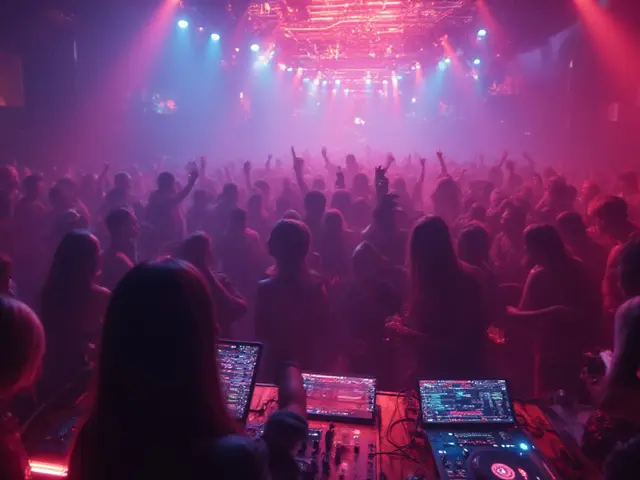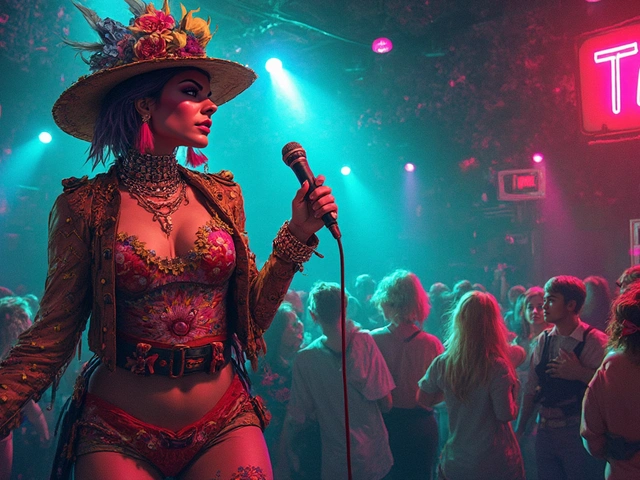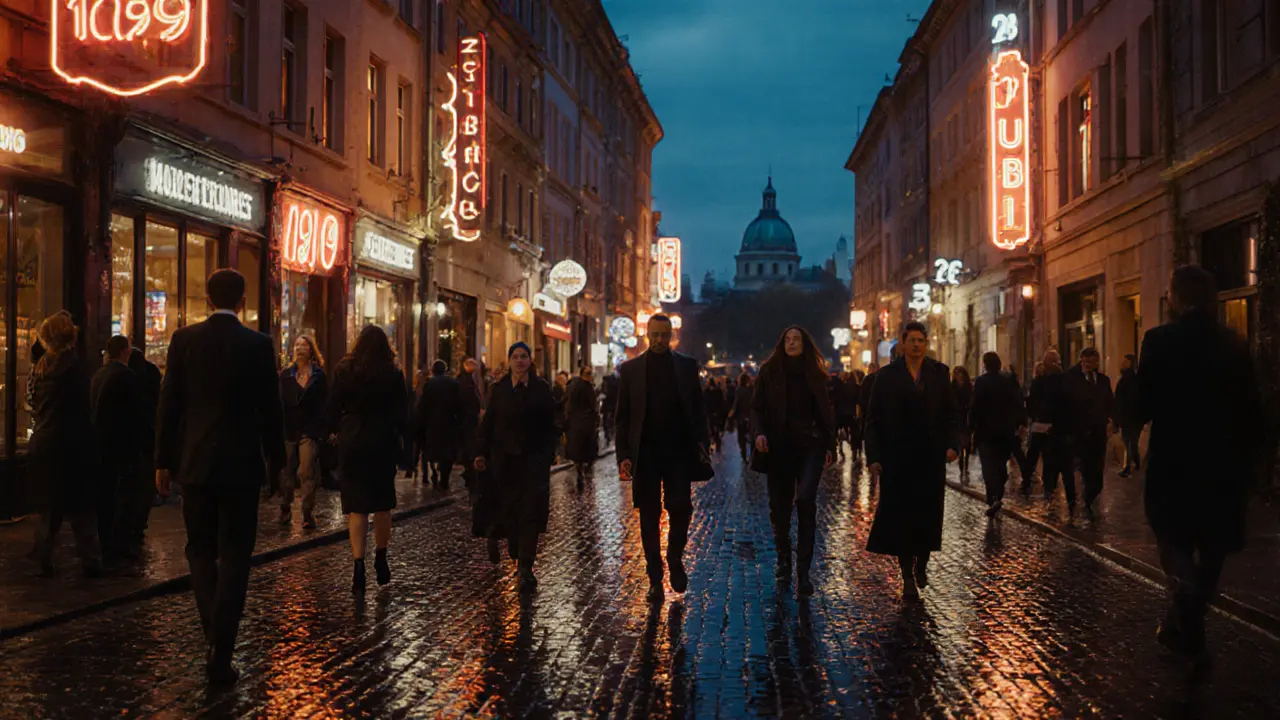
If you want to know where the real nightlife in Munich happens after 10 p.m., you won’t find it in the beer halls. The city’s club scene is loud, diverse, and always changing. You can dance to techno in an old factory, sip cocktails in a hidden basement, or party until sunrise under neon lights in a converted warehouse. This isn’t just about drinking-it’s about the vibe, the music, and who you’re with. Here are the top spots that actually matter in 2025.
Basic Club Culture in Munich
Munich doesn’t do late-night clubs the way Berlin or Ibiza does. There’s no all-nighters on weekdays, and most places close by 2 a.m. on Sundays. But on Fridays and Saturdays, the energy shifts. The city fills up with locals, tourists, students from LMU, and expats who’ve been waiting all week for this. The rules are simple: dress well enough to get in, don’t act entitled, and be ready to walk a few blocks. The best clubs aren’t always the ones with the biggest signs.
Most venues don’t take reservations. You show up, you wait in line, you pay a cover charge between €5 and €15. Some places, like Prinzregentenstrasse hotspots, start getting busy around 11 p.m. Others, like the underground spots in Schwabing, don’t even open until midnight. Cash is still king at the door. Cards work inside, but not always at the entrance.
1. Prinzregentenstrasse - The Heartbeat
Prinzregentenstrasse is where Munich’s nightlife started, and it still holds the crown. The stretch between Marienplatz and the Englischer Garten is packed with clubs, but only a few stand out. 1919 is the oldest continuous club in the city, opened in 1978. It’s not fancy, but it’s raw. The sound system is old-school, the crowd is mixed-students, artists, 40-somethings who still know how to move-and the music leans toward deep house and disco revival.
Just down the street, Club 23 pulls in a younger crowd. It’s smaller, darker, and louder. DJs here play techno and industrial beats. The walls are covered in graffiti, and the floor is sticky from spilled drinks. You won’t find a menu here-just beer, vodka, and a few cocktails. It’s the kind of place where you’ll meet someone from Tokyo, Sydney, or Stuttgart, and end up dancing until 3 a.m.
2. Rote Sonne - The Underground Giant
Don’t let the name fool you. Rote Sonne isn’t a red sun-it’s a red brick warehouse on the edge of the city, near the S-Bahn station at Messestadt. This place used to be a factory for printing newspapers. Now, it’s one of the biggest clubs in Bavaria. It has three rooms, a rooftop terrace, and a sound system that shakes your ribs.
On weekends, Rote Sonne books international DJs from Berlin, Amsterdam, and even Detroit. The crowd is mostly 25 to 35, dressed in black, with headphones around their necks. The music? Hard techno, minimal, acid. It’s not for beginners. If you’ve never danced to a 140 BPM beat, this might break you. But if you love it, you’ll come back every weekend.
Pro tip: Arrive before midnight. The line wraps around the block after 1 a.m. And bring a jacket-it’s cold inside.
3. Kulturbrauerei - The Party Factory
Located in the old brewery district near the Isar River, Kulturbrauerei is a massive complex with five separate venues under one roof. It’s not one club-it’s five different nights. On Fridays, it’s Wunderbar, a retro lounge with live bands and vinyl-only DJs. Saturdays belong to Club 18, a warehouse rave with lasers and fog machines. Sundays? That’s when the hip-hop and bass-heavy beats take over at Low Key.
What makes Kulturbrauerei special is the space. You can walk from one room to another without leaving the building. There’s a bar with craft beer from local breweries, a food truck serving currywurst at 2 a.m., and even a small art gallery in the back. It’s the only place in Munich where you can start with a cocktail, end with a techno set, and still have time to catch the last train.
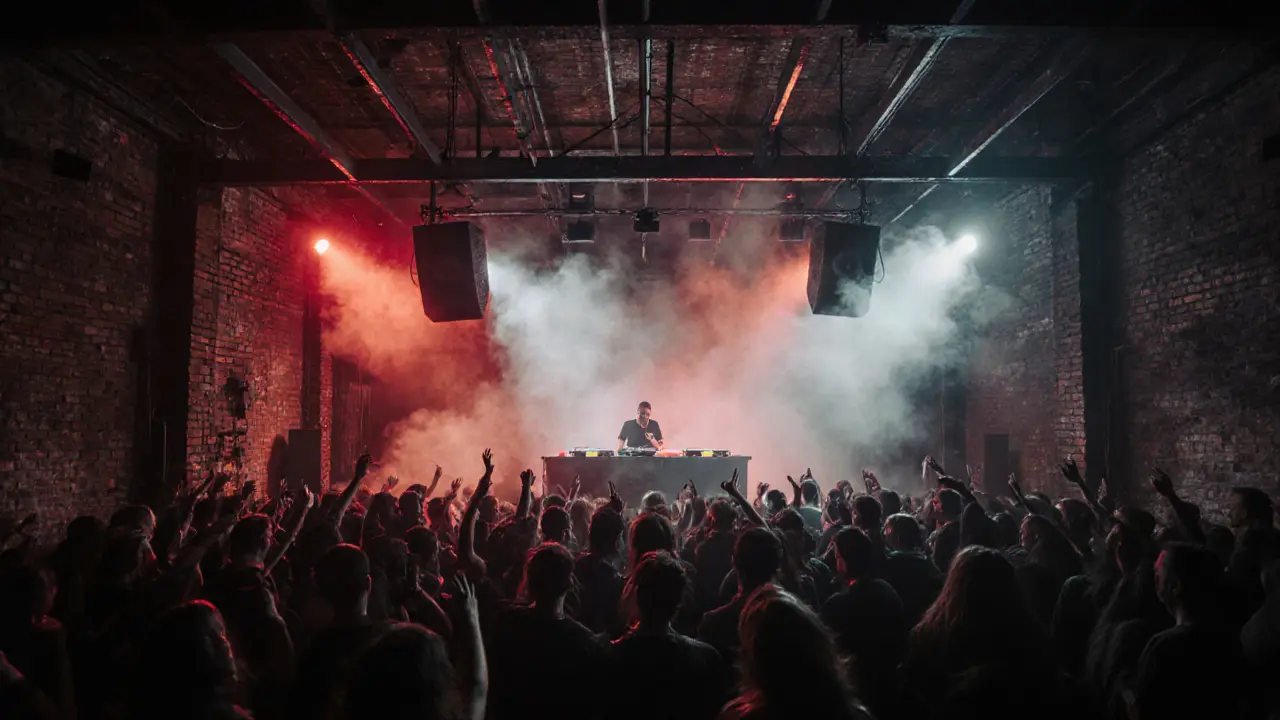
4. B1 - The Alternative Scene
B1 is tucked away in a quiet corner of Schwabing, behind a plain door with no sign. You need to know someone-or have a friend who’s been there-to find it. Inside, it’s dim, cramped, and smells like old wood and sweat. The music is experimental: ambient, noise, post-punk, glitch. The crowd? Artists, musicians, poets, and people who hate mainstream clubs.
There’s no DJ booth. No dance floor. Just a small stage and a few old couches. People sit, listen, or just stare at the walls. Sometimes, a local band plays for free. Other nights, it’s a spoken word night or a film screening with live sound design. B1 doesn’t care about popularity. It cares about authenticity. If you’re tired of the same beats and the same crowd, this is your escape.
5. Schumann’s - The LGBTQ+ Hub
On the corner of Schumannstrasse and Brienner Strasse, Schumann’s has been the heart of Munich’s queer nightlife since 1982. It’s not just a club-it’s a community. On Fridays, it’s Drag Night with performances that rival Vegas. Saturdays are Lesbian & Queer Dance, with DJs spinning everything from pop remixes to underground house. Sundays? Trans Night, a safe space with no judgment, just music and acceptance.
The crowd here is diverse: young, old, non-binary, transgender, straight allies. The cover charge is usually lower than other clubs-€5 at most. The drinks are cheap, the staff is friendly, and the energy is electric. If you’ve ever felt out of place in a club, this is where you belong.
What to Avoid
Not every place that calls itself a club is worth your time. Stay away from tourist traps like Maximilians or Chill Out near the Marienplatz. They’re loud, overpriced, and full of people taking selfies. The music is generic EDM, and the bouncers care more about your passport than your vibe.
Also, skip the “VIP tables” at places like Wunderbar or Club 23. They’re a scam. You pay €150 for two bottles of vodka and a seat next to the wall. You’ll spend more time waiting for service than dancing. Stick to the bar. Talk to people. That’s how you find the real nights.
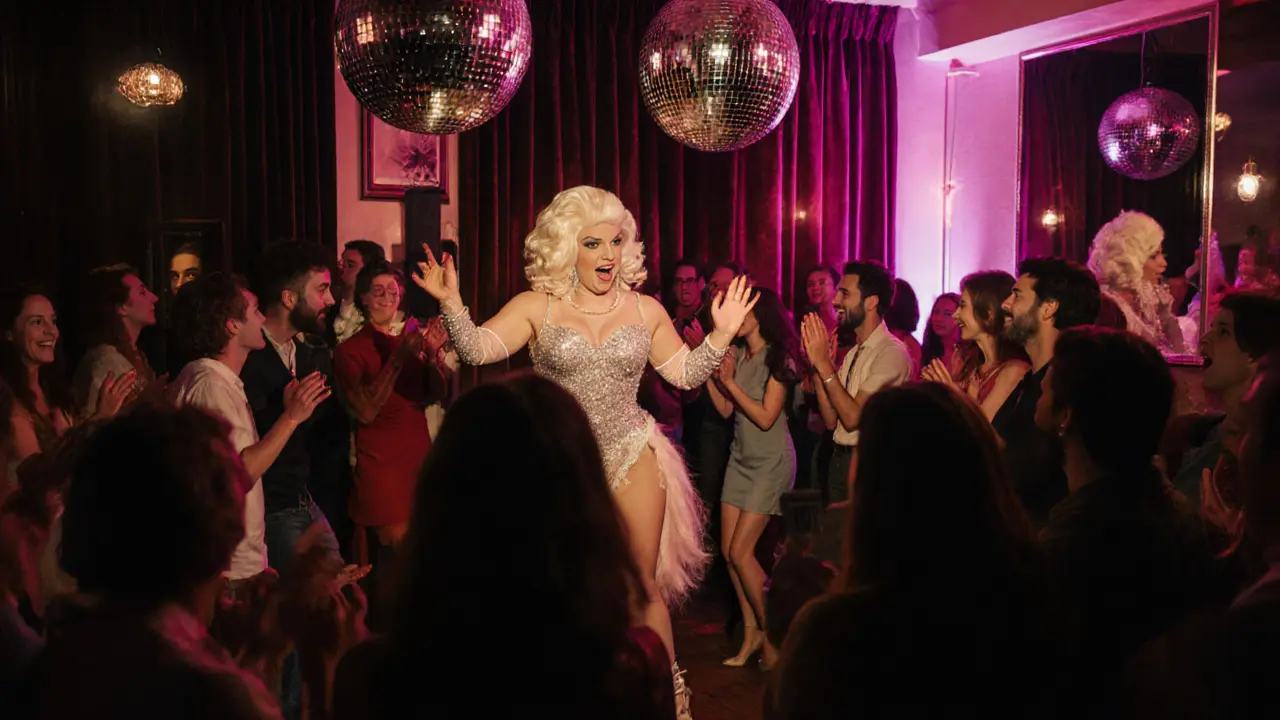
When to Go
Friday and Saturday are the only nights that matter. Clubs open at 10 p.m. or 11 p.m., peak around midnight to 2 a.m., and close by 3 a.m. Sunday nights are quiet-except for Schumann’s and Kulturbrauerei’s Low Key. If you’re visiting for a weekend, plan your nights ahead. Don’t show up at 1 a.m. expecting to get in somewhere popular. Lines are long. Doors close early.
Check Instagram or Resident Advisor for last-minute changes. Some clubs drop surprise sets on Thursdays. A DJ from Berlin might show up at Rote Sonne without warning. That’s when the real magic happens.
What to Wear
No shorts. No flip-flops. No baseball caps. Most clubs have a dress code, even if they don’t say it. Dark jeans, a nice shirt, boots or clean sneakers. Women: dresses or tailored pants. Men: avoid logos. You don’t need to look like a model, but you do need to look like you care.
Bring a light jacket. Even in summer, the inside of clubs is freezing. And carry cash-€20 to €30 should cover cover charge, drinks, and a taxi home.
How to Get Around
Munich’s public transport runs until 1:30 a.m. After that, you need a taxi or Uber. The city has a strict no-drinking-and-driving policy. If you’re caught over 0.5‰, you’ll lose your license and pay a fine. Stick to the S-Bahn or U-Bahn. The last train leaves around 1:30 a.m. on weekends. If you miss it, a taxi from the city center to the suburbs costs about €15 to €25.
Or better yet-stay nearby. There are hostels and budget hotels within walking distance of Prinzregentenstrasse and Kulturbrauerei. You’ll save money, sleep better, and wake up ready for the next night.
Final Tip: Don’t Rush
Munich’s club scene isn’t about checking boxes. It’s not about saying you’ve been to the “best” club. It’s about finding the one that feels right. Maybe it’s the basement with the broken lights. Maybe it’s the rooftop with the view of the Alps. Maybe it’s the place where the DJ plays a song you haven’t heard since high school.
Take your time. Talk to the people around you. Ask what they’re listening to. You’ll learn more from a stranger than from a travel blog. And if you’re lucky, you’ll find a night you never forget.
What time do clubs in Munich usually close?
Most clubs in Munich close between 2 a.m. and 3 a.m., especially on weekends. Some, like Rote Sonne or Kulturbrauerei, might stay open until 4 a.m. on Saturdays, but that’s rare. On Sundays, most places shut down by midnight. The city enforces strict noise laws after 2 a.m., so don’t expect all-nighters.
Is there a dress code for clubs in Munich?
Yes, most clubs have an unspoken dress code. Avoid shorts, flip-flops, sportswear, and baseball caps. Dark jeans, a clean shirt, and boots or clean sneakers work for men. Women should wear dresses, tailored pants, or stylish tops. You don’t need to be fancy, but you do need to look like you made an effort. Bouncers at places like Club 23 and Rote Sonne will turn away people who look too casual.
Do I need to book a table in Munich clubs?
No, and you shouldn’t. VIP tables are overpriced and usually a waste of money. Most clubs don’t even offer them. You pay a cover charge at the door (€5-€15), then buy drinks at the bar. The real experience happens at the bar, not in a reserved corner. If someone tries to sell you a table, walk away.
Are Munich clubs safe for solo travelers?
Yes, Munich is one of the safest cities in Europe for solo nightlife. The bouncers are professional, the police patrol regularly, and most clubs have security cameras. Still, keep your belongings close, don’t leave drinks unattended, and avoid going too far from the main club areas. Stick to well-known spots like Schumann’s, Kulturbrauerei, or Prinzregentenstrasse if you’re alone.
What’s the best night to go out in Munich?
Friday and Saturday are the best nights. Clubs are packed, DJs are at their best, and the energy is high. Sunday nights are quieter, except for Schumann’s and Kulturbrauerei’s Low Key. Avoid Mondays and Tuesdays-most clubs are closed. If you’re visiting for a weekend, plan your Friday and Saturday nights in advance. Don’t wait until the last minute to decide where to go.
Can I use a credit card in Munich clubs?
You can use cards inside most clubs for drinks, but not always at the door. Many venues still require cash for the cover charge. Bring at least €20 in cash. ATMs are nearby, but lines get long after midnight. Some newer clubs like Wunderbar accept cards at the entrance, but don’t count on it.
Are there any free clubs in Munich?
True free clubs are rare, but some places offer free entry during the week or for early arrivals. B1 sometimes lets people in for free on Thursday nights if they’re under 25. Kulturbrauerei occasionally has free entry for the first 100 people on Sundays. Check their Instagram pages-many post last-minute free entry deals. But don’t expect it on weekends.
What’s the average cost for a drink in Munich clubs?
A beer costs €7 to €9. A cocktail is €10 to €14. A shot of vodka or whiskey runs €6 to €8. Prices are higher in tourist-heavy areas like the city center. Clubs in Schwabing or near the Isar River are cheaper. If you want to save money, go early-prices go up after midnight. And never order a “long drink” unless you know what’s in it.


